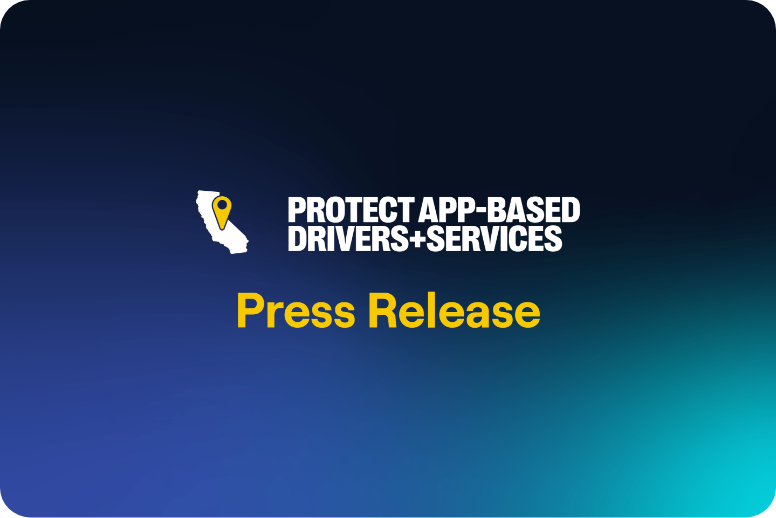By Santa Rosa Press Democrat Editorial Board
Proposition 22 is shaping up as a ballot-box version of the gunfight at the OK Corral. Instead of the Clantons and Earps, this feud pits organized labor against Uber, Lyft and other app-based service companies.
While any shooting will be of the rhetorical variety, the outcome may determine whether the gig economy survives in the state where it got its start. And the ripple effects could help shape the future of the workplace for everyone in California.
Proposition 22 would allow app-based transportation and delivery companies to continue using independent contractors — drivers who set their own work hours and determine which assignments they accept and reject.
The app-based business model was thrown into question by a 2018 state Supreme Court ruling that imposed a strict new test for determining whether someone is an independent contractor or a statutory employee. The ruling applied wage and hour rules to many people who had been classified, and in some cases misclassified, as independent contractors.
State lawmakers followed up in 2019 with legislation to codify the Supreme Court decision. But Assembly Bill 5 went further, requiring employers to provide benefits that weren’t included in the court ruling, among them unemployment insurance and workers compensation.
The primary targets of AB 5 were Uber, Lyft and other gig economy companies. And the advocates were unions eager to organize their drivers.
Uber and Lyft say they will leave California if their business model is outlawed.
However, the impacts of AB 5 extend far beyond ridesharing and meal deliveries. An estimated 4 million Californians were doing gig work when the bill passed, many of them supplementing income from other jobs.
Some companies laid off contractors or stopped using California-based contractors when AB 5 took effect on Jan 1.
We’ve written about the threat to our own industry, which has relied on independent contractors to deliver newspapers for generations. With newspapers already struggling, AB 5 would put some publications out of business. Others would publish less frequently, raise prices or reduce their home delivery zones.
AB 323, which passed in this year’s legislative session, grants newspapers a one-year exemption from the law.
AB 5 included permanent exemptions for 56 occupations, ranging from accountants and architects to web designers and yard cleaners.
This year brought three dozen follow-up bills seeking exemptions — evidence that a one-size-fit-all approach doesn’t work in an evolving workplace.
AB 2257 passed, creating 100-plus new exemptions, ranging from youth sports officials and translators to real estate appraisers and recording artists. Good for them, but exemption by legislation only creates a new line of work for Sacramento lobbyists.
Proposition 22 only affects certain app-based companies, so it’s another symptom rather than a cure. But it promisess new benefits for drivers, including a guarantee of at least $21 an hour in wages and insurance for on-the-job injuries.
Approving Proposition 22 would send a clear signal to Sacramento that Californians want ride shares and other app-based services to stay, and they want people to have the option of setting their own hours around other jobs, school or family obligations.
Call it moonlighting or a side hustle or entrepreneurship, millions of Californians have found a new source of income in the gig economy. Don’t take it away from them. The Press Democrat recommends a yes vote on Proposition 22.
The Latest News

Press Releases
California Supreme Court Unanimously Upholds Prop 22 in Historic Ruling
Date: July 25, 2024 Contact: Molly Weedn, (415) 209-4217 [email protected] California Supreme Court Unanimously Upholds [...] Read more
Press Releases
PADS Responds to Conclusion of Oral Arguments on Prop 22
Date: May 21, 2024 Contact: Molly Weedn, (415) 209-4217 [email protected] The Coalition to Protect App [...] Read more